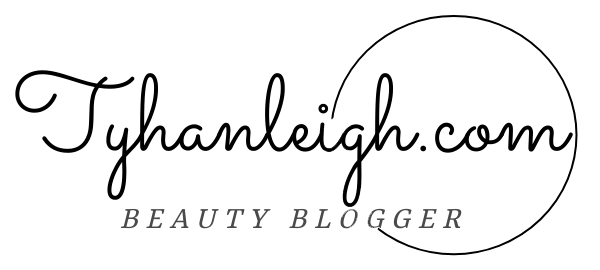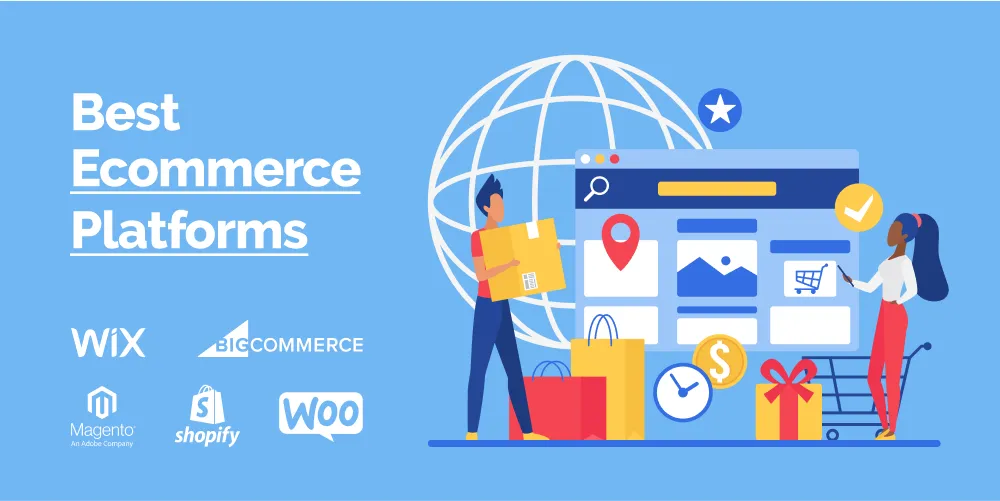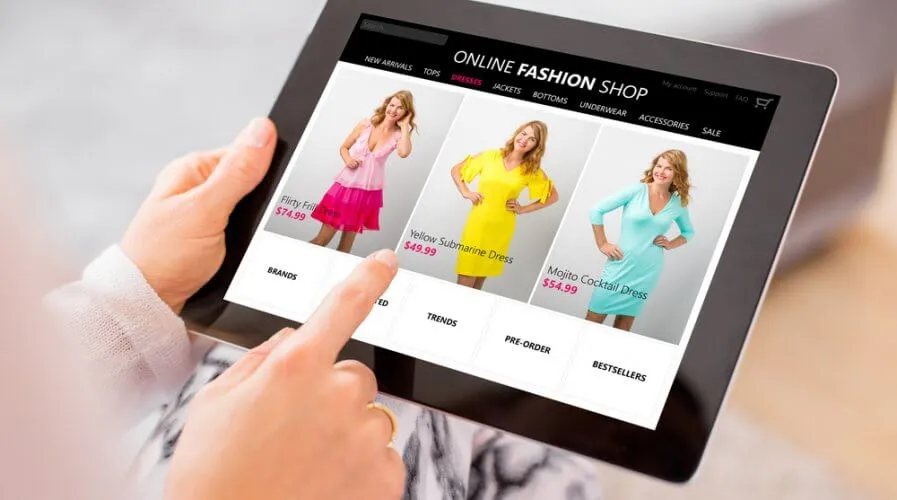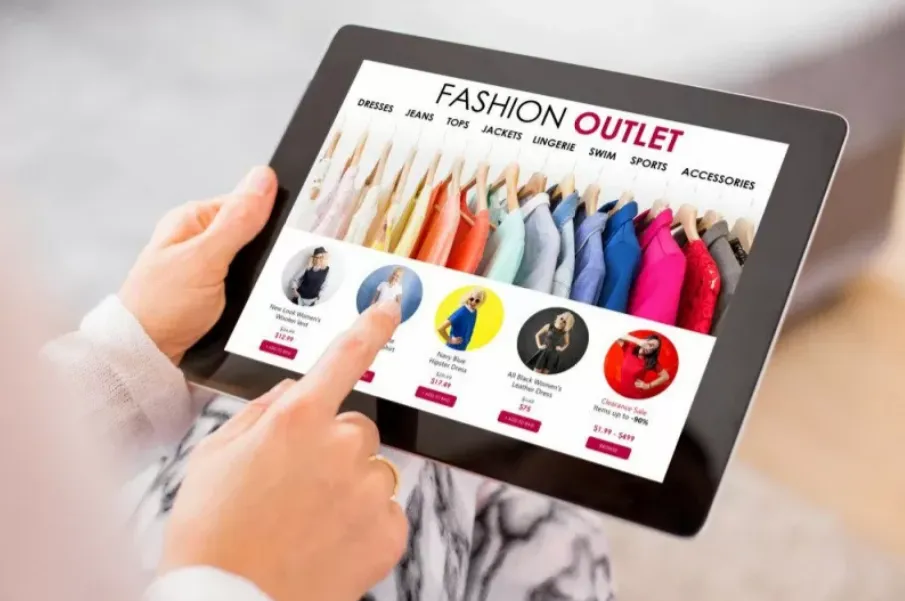Tyhanleigh.com – In today’s digital age, choosing the right e-commerce platform is crucial for fashion brands looking to thrive online. With countless options available, selecting the perfect platform can be overwhelming. This guide will walk you through the top e-commerce platforms tailored for fashion brands, ensuring you make an informed decision to elevate your online presence.
-
Introduction to E-commerce Platforms
E-commerce platforms serve as the backbone of online retail, providing the tools needed to manage sales, inventory, and customer interactions. For fashion brands, the platform must offer more than just basic features; it should enhance the shopping experience, streamline operations, and support brand growth.
-
Key Features to Consider
2.1. User-Friendly Interface
An intuitive, easy-to-navigate interface ensures both you and your customers have a smooth experience. Look for platforms that offer drag-and-drop functionality and customizable templates.
2.2. Mobile Responsiveness
With an increasing number of consumers shopping on mobile devices, choosing a platform that is mobile-responsive is essential. This ensures your website looks great and functions well on all devices.
2.3. Customization Options
Fashion brands often need unique design elements to showcase their products effectively. A good e-commerce platform should offer extensive customization options to align with your brand’s aesthetic.
2.4. Integration Capabilities
The ability to integrate with third-party tools such as payment gateways, inventory management systems, and marketing platforms can significantly enhance your e-commerce operations.
2.5. SEO Features
To improve visibility in search engines, your platform should include robust SEO features like customizable URLs, meta tags, and site maps.
-
Top E-commerce Platforms for Fashion Brands
3.1. Shopify
Shopify is a top choice for many fashion brands due to its ease of use and scalability. It offers a range of customizable templates specifically designed for fashion stores. Key features include:
- App Integration: Access to a wide range of apps for inventory management, marketing, and customer service.
- Mobile Optimization: Mobile-friendly design ensures a seamless shopping experience.
- SEO Tools: Built-in SEO features help improve your search engine rankings.
3.2. WooCommerce
WooCommerce is a powerful WordPress plugin that transforms a standard WordPress site into a full-fledged e-commerce store. It’s ideal for fashion brands looking for flexibility and customization. Features include:
- Customizable Design: Extensive design options to match your brand’s style.
- Product Management: Advanced product management tools for various fashion items.
- SEO Optimization: Compatible with popular SEO plugins for enhanced visibility.
3.3. Magento
Magento is known for its robust features and flexibility, making it suitable for larger fashion brands with complex needs. Key benefits include:
- Scalability: Supports high traffic volumes and large inventories.
- Customizability: Highly customizable to fit unique fashion brand requirements.
- Advanced SEO Features: Comprehensive SEO tools to boost online visibility.
Other articles:
3.4. BigCommerce
BigCommerce offers a feature-rich platform designed for growing fashion brands. It provides:
- Built-In Features: Includes tools for SEO, analytics, and multi-channel selling.
- Customization: Options for custom design and functionality.
- Performance: Fast loading times and secure transactions.
3.5. Wix
Wix is known for its ease of use and design flexibility. It’s ideal for smaller fashion brands or those just starting. Features include:
- Drag-and-Drop Builder: Easy-to-use website builder for creating a visually appealing store.
- Templates: Fashion-focused templates to showcase your products.
- SEO Tools: Basic SEO features to help with search engine rankings.
-
Comparing E-commerce Platforms
4.1. Cost
Cost varies significantly among platforms. Shopify and BigCommerce typically have higher monthly fees but offer extensive features. WooCommerce can be more cost-effective but may require additional expenses for plugins and hosting.
4.2. Ease of Use
Shopify and Wix are renowned for their user-friendly interfaces, making them suitable for those without technical expertise. Magento, while powerful, has a steeper learning curve.
4.3. Scalability
For brands anticipating rapid growth, Magento and BigCommerce offer scalability to handle increased traffic and inventory.
4.4. Customization
If customization is a priority, WooCommerce and Magento provide extensive options to tailor your store’s design and functionality.
Other articles:
-
Case Studies: Fashion Brands Thriving Online
5.1. Case Study 1: Fashion Nova
Fashion Nova, a prominent fashion brand, utilizes Shopify for its e-commerce operations. The platform’s scalability and SEO features have supported the brand’s rapid growth and high visibility.
5.2. Case Study 2: Gymshark
Gymshark, a fitness apparel brand, leverages Magento to manage its large inventory and high traffic. The platform’s customizability and performance capabilities have been instrumental in the brand’s success.
-
Best Practices for Fashion E-commerce Success
6.1. Invest in High-Quality Product Images
High-resolution images are crucial for fashion brands. Invest in professional photography to showcase your products in the best light.
6.2. Optimize Your Site for Speed
Ensure your e-commerce platform and website are optimized for fast loading times. A slow site can deter potential customers and impact your sales.
6.3. Utilize Social Media Integration
Integrate social media platforms with your e-commerce site to enhance brand visibility and engage with your audience.
6.4. Offer Excellent Customer Support
Provide multiple channels for customer support, including live chat, email, and phone, to assist customers promptly.
-
Conclusion
Selecting the right e-commerce platform is crucial for fashion brands aiming to establish a strong online presence. Consider factors such as ease of use, customization options, and scalability when making your decision. Platforms like Shopify, WooCommerce, Magento, BigCommerce, and Wix each offer unique features to cater to different needs. By choosing the platform that aligns with your brand’s requirements, you can enhance your online store’s performance and drive growth.
-
FAQ
8.1. What is the best e-commerce platform for small fashion brands?
For small fashion brands, Shopify and Wix are excellent choices due to their user-friendly interfaces and affordable pricing.
8.2. Can I integrate social media with my e-commerce platform?
Yes, many e-commerce platforms, including Shopify and BigCommerce, offer social media integration to enhance your brand’s online presence.
8.3. How important is mobile responsiveness for an e-commerce site?
Mobile responsiveness is crucial as a significant portion of online shopping is done on mobile devices. Platforms like Shopify and WooCommerce ensure your site is mobile-friendly.
8.4. What are the SEO benefits of using Magento?
Magento offers advanced SEO features, including customizable URLs, meta tags, and site maps, which help improve your search engine rankings.
8.5. How can I ensure my e-commerce site loads quickly?
Optimize your site’s images, use a reliable hosting provider, and choose an e-commerce platform with good performance features to ensure fast loading times.
This guide provides a comprehensive overview of the best e-commerce platforms for fashion brands, enabling you to make an informed decision and elevate your online retail business.




